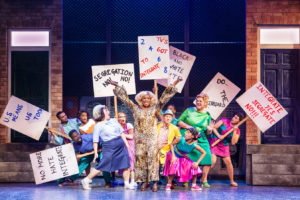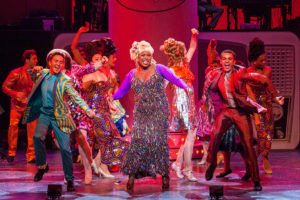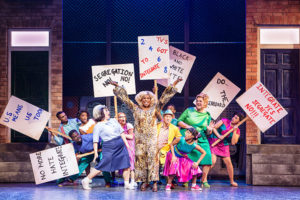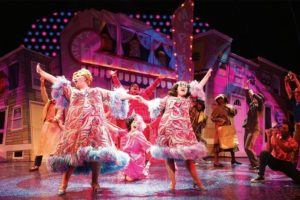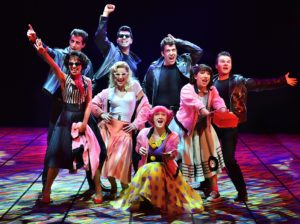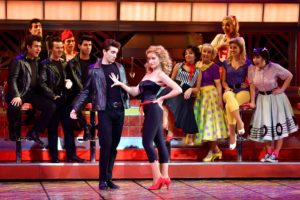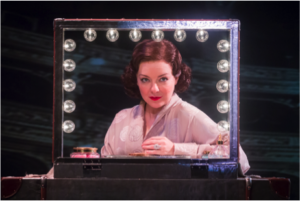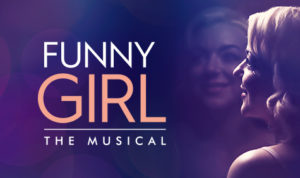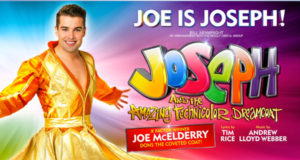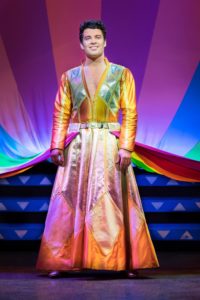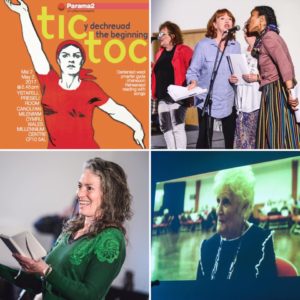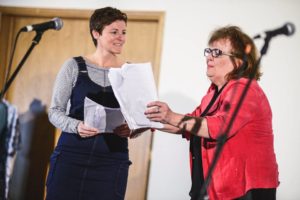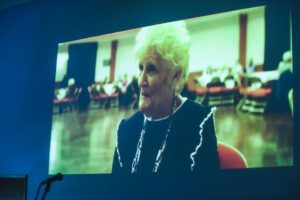
The director of Get the Chance Guy O’Donnell recently met with actor Kyle Lima. They discussed his training, his new production Heat and Soul which will be performed at Wales Millennium Centre this November and his thoughts on the arts in Wales.
Hi Kyle great to meet you, can you give our readers some background information on yourself please?
Hi I was born and raised in Cardiff and grew up in Splott. I went to Baden Powell Primary school and Willows High School. I then went on to study drama on a foundation course for a year then a two year BTEC course at Coleg Glan Hafren in Performing Arts. I then went on to study at The Royal Welsh College of Music and Drama, graduating in 2009. I’ve been fortunate enough to have worked with the Artistic Director of the Bristol Old Vic and the visionary mind behind the world renowned production of ‘War Horse’, Tom Morris, in his BOV world tour production of A Midsummer Nights Dream in which I played the young lover Demetrius.
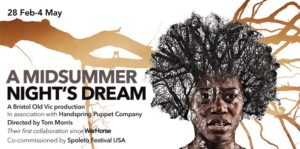
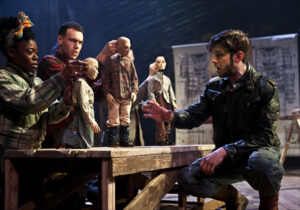
A Midsummer Nights Dream, Bristol Old Vic Theatre
Most recently I have worked with the artistic director of the Shakespeare’s Globe, Emma Rice, in her production of The Little Match Girl in The Sam Wanamaker Theatre at the Globe,
The Little Match Girl, Shakespeare’s Globe Theatre.
As well as Emma’s ‘Kneehigh’ production of ‘Tristan & Ysult’ in which I played the scheming right hand man of the king, Frocin.
Last year I was in Charlotte Churches ‘The Last Mermaid’ as part of the Wales Millennium Centre’s first Festival of Voice which was an incredible experience.
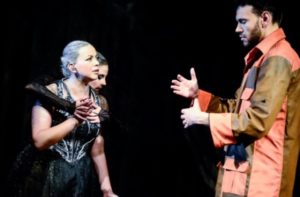
The Little Mermaid, Charlotte Church, Festival of Voice, WMC.
So what got you interested in acting and the arts?
I grew up loving films, TV and animation. I’d spent a lot of time drawing cartoons from the TV and eventually creating my own cartoon characters. I thought I was going to be an illustrator or work in animation but I as I got older I found drawing isolating and wanted to be more social. When I went to high school and discovered drama classes and found that I could make people laugh having absorbed so much performance ability from watching a lot of films and TV, I started to think that acting was something I potentially wanted to do. I had an extraordinary drama teacher at High School called Jo Bryant who was extremely encouraging and brought something out of me as well as every child she taught. At eleven or twelve years old In my first year of High School she told that I was going to be in the school play and that I basically didn’t have a choice. It was Little Shop of Horrors. It was a two week run. Jo told me she wanted me to play the crazy dentist one week and to be the voice of the alien planet, Audrey two, the next but even though I had performed in drama class to a small group of my classmates the idea of performing to the whole school terrified me so I asked if I could just play the alien plant because it meant I could play this brilliant character and sing amazing songs but all while standing behind a curtain speaking in to a microphone while some poor soul stood inside a giant foam plant puppet and moved it around to match the performance of my voice. That experience was wonderful! It was really was the start of my love of acting. I eventually did step on stage in further school productions as I got a older and grew in confidence. Jo Bryant was a ray of light and really opened the door to what I was capable of, not only as an actor but as a person. Jo passed away many years ago due to illness but I think of her often. She was wonderful.
You have a new one man show called Heart and Soul at The Wales Millennium Centre on Nov 24th & 25th. Can you tell us more about this production?

Heart and Soul is a one man show about the great ‘heart’ and spirit of the Welsh, combined with the influential ‘Soul’ music, as well as other genres of the music of black culture. The Wales Millennium Centre will be housing the production. Heart and Soul is a show that celebrates the unique multicultural communities of Cardiff, performed by myself portraying characters based on different generation of my family and the people of Cardiff. It will be a combination of historic and comedic stories inspired by different periods of my family and other members of the Cardiff communities lives, interwoven with live music and songs of each characters heyday sung by me while accompanied on piano by accomplished musician Chris Hyson . The songs vary from Vocal-Jazz, classic soul, 90’s RnB & Garage and perhaps a few other surprises too!
You can watch a video of the production below
Get the Chance works to support a diverse range of members of the public to access cultural provision Are you aware of any barriers to equality and diversity for either Welsh or Wales based artists/creatives?
I feel the only real barrier is ourselves. We can be our own worst enemy in terms of not doing what we want and pursuing our dreams and goals. I know I’ve stood in my own way many times over the years but If you want something bad enough you have to step out of your own way. If you want to do something you have to do it. Take it. We don’t all start off in life from an equal playing field, that is apparent, in many ways more so than ever and there are those out there who will want to keep it that way, but you have to do want you want and go for it anyway. In terms of barriers within the arts, more doors must be open for people of diverse multicultural working class backgrounds to enable them to ascend to positions of power with in the arts and industries in general. When there is a variety of people at the top levels of decision making the opportunities will trickle down and we will see more equality. If we invest in young people from working class and multi culture communities who show a passion for the arts and if we continue to mentor them throughout their lives, they could potentially be the next future artistic director of a theatre company and having the perspective of their background and life experience they will then continue to create opportunities for those like them as well as others.
Organisations such as The Wales Millennium Centre have worked with the diverse communities geographically close to their venue for a number of years. Do you feel local communities have a genuine connection to the venue and its artistic programme?
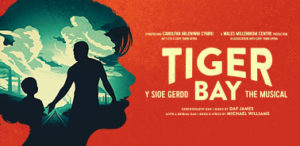
With the production of the Musical Tiger Bay as well as shows like my own which give examples of the multicultural history of Cardiff communities I hope the people of Cardiff will come and see these shows and feel a connection to the artistic creativity that is coming out of the Wales Millennium Centre.
If you were able to fund an area of the arts in Wales what would this be and why?
I would invest funding in to programs for children and young adults to experience the arts more. If I wasn’t lucky enough to have had a great drama teacher at High School who was so enthusiastic about theatre and who showed me that I was capable of performing, I wouldn’t be the man I am today.
What excites you about the arts in Wales? What was the last really great thing that you experienced that you would like to share with our readers?

I know it’s not theatre but I watched the bilingual TV program Bang on S4C recently and was really impressed by the caliber of the writing, production value and performances as well as by the amounts of great young actors that were in it who had graduated from the Royal Welsh College of Music and Drama. Wales is in a great place to nurture talent and I’m excited to see who will shine next. One actress in Bang was Alexandria Riley who I also saw along side Anita Reynolds and Seren Vickers in the Other Room’s production on Debbie Tucker Green’s play ‘Hang’, directed by Izzy Rabey.
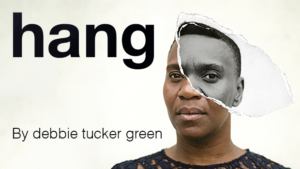
That was a great show with brilliant acting from all three actors. Rachel O’Riordan also directed Alexandria in the production of Gary Owen’s adaptation of The Cherry Orchard which was the last thing I saw. That had great performances in it also.

Thanks for your time Kyle

Guy O’Donnell

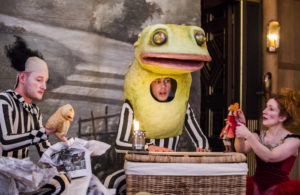
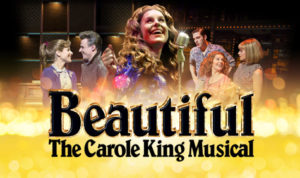


 (4 / 5)
(4 / 5)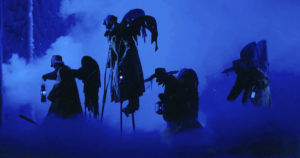
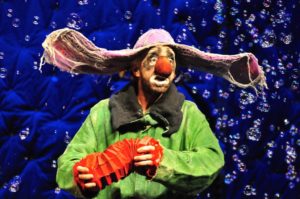
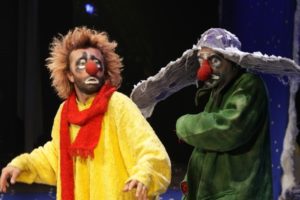

 (5 / 5)
(5 / 5)